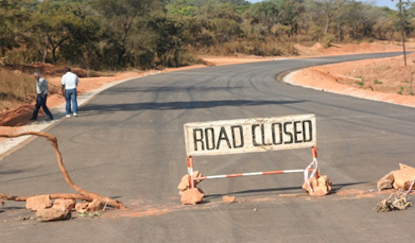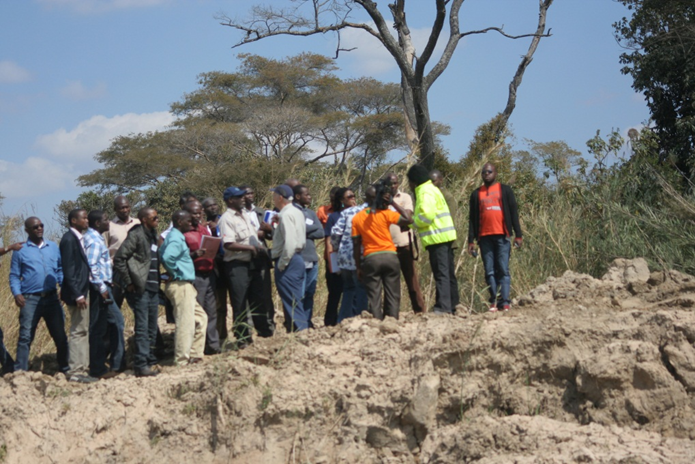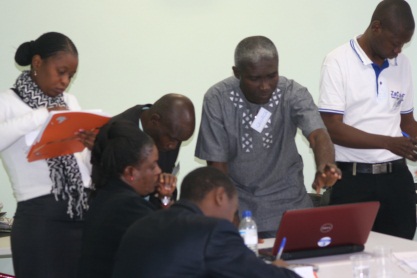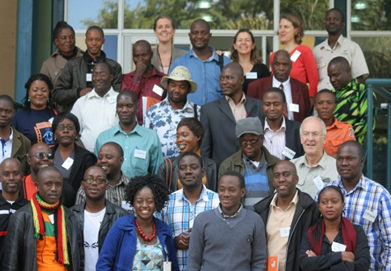Helping to Navigate the Roads Sector In Zambia

Roads are the life lines of a country. Roads provide for everything from trade to children walking to school. In Zambia, a country in southern Africa, there are major challenges in the roads sector. Often, roads are not built properly or maintained, and construction is too expensive, especially given the final product. Poor road quality affects the economy, along with all 14 million people in Zambia.
In the past four years the Government of Zambia has made the road infrastructure a major area of its focus and has invested heavily in improvements. This increased investment has also brought with it concerns of poor governance, and the fear of roads being built to nowhere, contracts being awarded due to cronyism or just general misappropriation of its funds.
Road contracts, the procurement process and monitoring of these contracts can be very technical, deluged in paperwork and hard to understand without specific training. To help raise the capacity of both civil society and journalists for more informed involvement and monitoring of the roads sector in Zambia, the Road Development Agency (RDA) and the World Bank have collaborated to create the Good Governance in Roads Project (GGRP). The project was funded by the Governance Partnership Facility, a multi-donor trust fund.

“If you can actually raise the capacity of these kinds of agents to really understand that sector and to make them feel confident about taking on the service providers and challenging them, you really could change the whole conversation about what’s happening with this investment in the roads sector,” said Kate Bridges, public sector specialist, World Bank, Zambia.
The GGRP kicked-off with a week-long training in July, with 30 participants from the media and CSOs from across Zambia. The training’s main objective was to improve the participants’ understanding of the road sector and to facilitate joint action between them and the RDA to improve roads in Zambia.
During the training, participants learned the procurement process, road contracts, the road sector setup, monitoring and evaluation, responsible and investigative journalism. The emphasis was to give participants a practical understanding of governance challenges in the sector and ways in which they could enhance accountability.

Together they identified what their key challenges are with road governance and how they could address them. Participants who had an interest in working on similar issues or in the same region of Zambia began to develop joint action plans including the development of a web portal with road contracting information and feedback mechanisms for citizens, a TV documentary series about roads issues and an advocacy campaign for citizens.
Participants also decided to form a network to coordinate their projects, share knowledge and engage in joint advocacy.
Participants from the training are now developing their action plans into full proposals which will have a chance to receive funding from the program. Selected grantees will then take part in a mentorship program throughout the one- year implementation of the project. “This is really the first time where CSOs and journalists have worked together to engage in the roads sector in Zambia,” said Bridges. Traditionally, CSOs and journalists have not understood the potential that can come from working together to share information and create campaigns. . At the end of the workshop one of the participating radio journalists committed to dedicating one of his shows each week to roads governance issues and to invite CSOs as speakers

“The World Bank Institute (WBI) has really been the source of innovation in this project,” said Bridges. She said that in contrast to previous trainings that she was involved in the training methods provided by WBI had led to a much higher level of participation and dialogue. This included sharing of examples from other countries such as India and Ghana.
With the mentorship program, “WBI also helped ensure that the program would last long after the training, by creating incentives for participants to use their training,” said Bridges.
“Personally, it was a unique learning platform,” said Chileshe Mwandama Nsama a participant in the program. “This has really enhanced the way to approach governance issues, with basic, but effective means of profiling and using information”.
The risks of inefficient investments and poor governance in road sectors worldwide are significant. Programs like the GGRP in Zambia are helping to bring together a variety of actors to build their capacity to understand the problems and work collaboratively to create shared solutions so that everyone in Zambia can benefit.
Kate Bridges describes the GGRP in Zambia
Kate Bridges discusses the added value that WBI brought to the GGRP in Zambia
Kate Bridges shares what she hopes will be results of the GGRP in Zambia